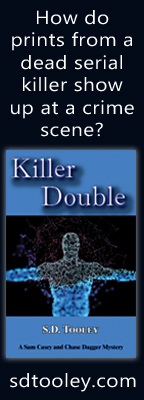by staff
Across the turbulent seas of life, mental health and addiction often coalesce into powerful storms that threaten our wellness. These challenges, while daunting, are not insurmountable. Below are several concrete strategies that can help individuals regain control over their mental health struggles, navigate through the storm, and move toward the calm waters of recovery.
Acknowledge and Accept Your Struggles
The first step on the journey to healing is acknowledging the existence of a problem. The weight of denial often intensifies the burden of mental health disorders and addictions. Acceptance does not imply resignation but rather represents the courageous first step in tackling your struggles head-on.
Understand the Nature of Your Problems
Recognize that both mental health issues and substance abuse disorders are not character flaws but legitimate medical conditions. Thorough understanding can eliminate the stigma and guilt often associated with these disorders, ultimately paving the way for effective treatment in beating substance abuse.
Seek Professional Help
Consulting with a mental health professional or addiction specialist can provide you with valuable insights, diagnoses, and treatment plans tailored to your specific needs. These experts are equipped with the knowledge and experience necessary to guide you through your journey to recovery.
Adopt Healthy Lifestyle Choices
Physical health significantly impacts mental well-being. Regular exercise, a balanced diet, and adequate sleep can help alleviate symptoms of mental health disorders and curb addictive behaviors. Moreover, these habits foster a sense of self-care and self-respect, integral to conquering addiction.
Engage in Cognitive Behavioral Therapy
Cognitive Behavioral Therapy (CBT) is a powerful tool in combating both mental health issues and addiction. CBT helps individuals identify and rectify negative thought patterns that often contribute to these disorders, providing them with healthier coping mechanisms.
Medication as a Resource
For certain individuals, medication can be an effective component of a comprehensive treatment plan. It’s essential to remember that medication isn’t a “quick fix” but rather a valuable resource that can work in tandem with other therapeutic strategies to promote recovery.
Leverage the Power of Support Networks
Strong support networks, whether they consist of family, friends, or support groups, are vital lifelines in your journey toward mental wellness. These networks provide emotional support, encouragement, and practical advice, fostering a sense of belonging that can counteract feelings of isolation and despair.
Consider the Benefits of Treatment Centers
Treatment centers, particularly those situated far from your usual environment, offer an immersive therapeutic experience. For example, someone in Sacramento would likely benefit from going to a treatment center near Laguna Beach more than they would one closer to home. That’s because facilities located hundreds of miles away provide comprehensive care while facilitating an escape from potential triggers and negative influences. As a result, they enable a hyper-focused path toward freeing yourself from addiction.
Develop Mindfulness and Meditation Practices
Mindfulness and meditation are powerful strategies for achieving mental clarity, managing stress, and reducing cravings. By fostering self-awareness, these practices can help individuals understand and manage their emotions, thus enabling effective control over their mental health struggles.
Be Patient with Your Progress
Recovery is not a linear process. There will be ups and downs, victories, and setbacks. Patience with yourself during this journey is critical. Celebrate your victories, no matter how small, and view setbacks not as failures but as opportunities for learning and growth.
Embrace the Power of Creative Expressions
Engaging in creative activities such as art, music, dance, or writing can be a potent therapeutic tool. They provide an outlet for expressing emotions that might be difficult to articulate otherwise. In addition, immersing yourself in these activities can promote mindfulness, reduce stress, and serve as a powerful distraction from addictive behaviors. These creative expressions, unique to each individual, can become an integral part of the healing process, enhancing self-esteem, and providing a sense of accomplishment on your path to beating addiction once and for all.
In Conclusion
Taking control of mental health and addiction struggles may feel like navigating a seemingly endless storm. However, these ten strategies provide a compass to guide you toward the horizon of hope and healing. Remember, no matter how intense the storm is, with courage, determination, and the right strategies, you can regain control and chart your course toward recovery.
Your journey is unique; your struggles are valid, and your resilience is virtually endless. Never hesitate to seek help, and always remember: you are not alone in this. The storm may be fierce, but the strength within you is fiercer. With every step you take on this path, you reclaim a piece of your life from the clutches of mental health and addiction struggles, steering your vessel toward the tranquility of recovery. Sail on, brave voyager, for your destination – a life of wellness and serenity – awaits.
Paid Post
















0 Comments